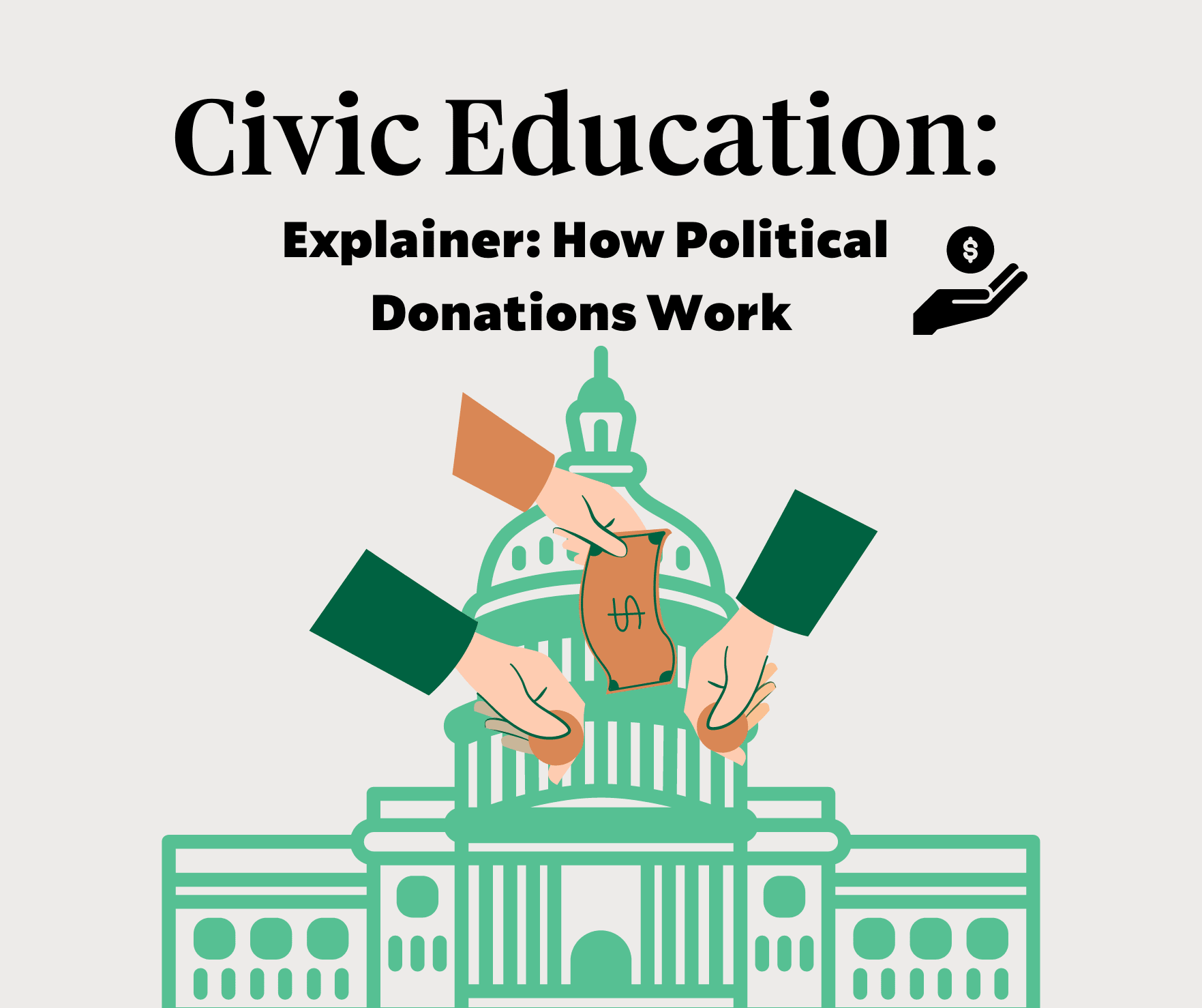
Explainer: How Political Donations Work
Money in politics: good for democracy?
Political donations shape democracies by funding campaigns and supporting advocacy efforts.
Living in a democracy means that the government is “of the people, by the people, for the people." However, money can sway politics. Understanding this can inform how voters hold politicians accountable and make choices aligned with their values.
Types of political donations
- Hard money: In politics, hard money is contributions made directly to a specific candidate without any strings attached. Donors don't ask for repayment, and candidates get the money regardless of winning. Political action committees (PACs) and individual donors can donate hard money.
- Soft money: Soft money is donations to parties and committees for party-related needs and general expenses rather than to support specific candidates. In the U.S., corporations, individuals, and committees can provide soft money.
Limits and regulations
- Federal Election Campaign Act (FEC Act): The FEC Act is the main federal law for controlling campaign money. In 1974, it capped how much hard money individuals and groups can give to one candidate. Soft money, however, has fewer regulations about how much can be given.
- Disclosure requirements: Individuals and groups in politics must follow disclosure requirements set by the government. These rules allow the media and the public to examine campaign money and track donations.
Campaign financing
In general, campaigns may raise funds from individuals, political party committees, and political action committees (PACs).
- PACs: Corporations and labor groups can't donate directly to federal campaigns. However, they can influence elections by creating political action committees (PACs) where they solicit donations from their members, fund advertising, and other campaign activities.
- Public funding: Under the presidential public funding program, eligible candidates receive government money to cover certain campaign costs in primary and general elections.
- Smaller donations: The rise of digital platforms has enabled candidates to gather numerous small-dollar donations from grassroots supporters.
What do you think? Do you support the current laws and regulations on money in U.S. politics?